A walk along the Tijuana-San Diego border opens this pilgrim’s eyes to the plight of refugees.
The sun above the San Diego-Tijuana border is aggressive even for a mild January morning. The sunlight in this part of the country weighs on my shoulders differently somehow, like a jacket I can’t take off. But even on this pristine day, as a visitor in the Barrio Logan neighborhood of San Diego, I am immediately confronted by it: the fence.
It’s an imposing structure—by design. The rust-colored fence is lined with mesh and coiled barbed wire that stretches some 700 miles along the 2,000-mile border between our two countries. From this pilgrim’s perspective, I’m dwarfed by it. It’s so tall it blocks the sky.
I am one of many here. This border experience, hosted by the University of San Diego’s Franciscan School of Theology, offers a boots-on-the-ground view of the perils of immigration. As our group of roughly a hundred meanders along the border, it’s impossible not to feel like you’re being watched, even studied. Border patrol is a constant presence. One officer in particular cuts an intimidating figure. Chewing gum feverishly, he’s wearing mirrored sunglasses and is heavily armed.
I quickly look away: at my feet, at the fence that is inescapable, at the friars who shepherd our group. Their brown habits are a measure of reassurance. My mind somehow finds the space to wander. I think about three stories separated by centuries, language, culture, and circumstance and which nevertheless provide a framework for me during this immersion experience.
Holy Family: Refugees on the Run
“Rise, take the child and his mother, flee to Egypt, and stay there until I tell you. Herod is going to search for the child to destroy him” (Mt 2:13).
According to the UN Refugee Agency, more than 117 million people will be displaced from their home countries this year alone. The war in Ukraine has only worsened the crisis. Citizens without a state to call home, many will traverse dangerous waters or deserts to the United States and beyond for a better life. As they escape torture or other human rights violations, it’s hard for me not to compare asylum seekers with the Holy Family’s escape into Egypt. The parallels are just too real to ignore.
As I walk this route, I spot a pregnant Hispanic woman pushing a toddler in a stroller. She stops to answer a phone call and begins to rub her lower back. I think about Mary and her flight in the desert—carrying a newborn in her arms and in distress. How did she manage? How did Joseph calm her fears? I can’t fathom the difficulties of their journey, the biting chill of the desert night, how each mile brought uncertainty.
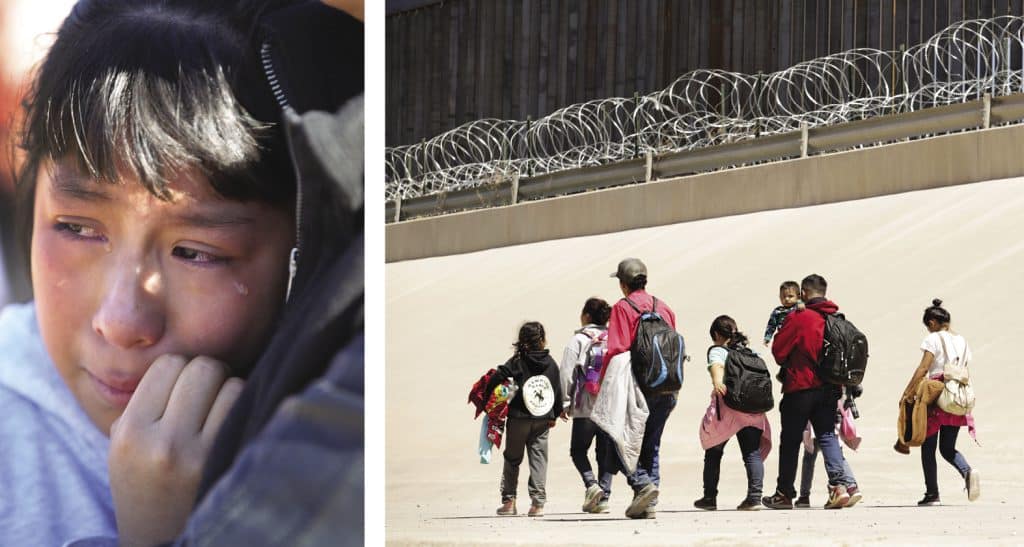
It takes grit to cross a border for a better life, irrespective of laws. This is a reality to which I simply cannot relate. But as I survey the landscape around me, dotted with flecks of green and framed by canyons, I think of what it might look like in the dead of night: negotiating the jagged terrain with no protection from the elements.
At a weekly general audience in December 2021, Pope Francis likened the plight of asylum seekers to the struggle of the Holy Family. “Herod is a symbol of many tyrants of yesterday and today. For these tyrants, people don’t matter, power matters,” he said before giving us a simple call to action. “Protect all those who flee because of war, hatred, and hunger.”
The best that I can do is offer up a prayer for those who need it.
A Saint Befriends a Sultan
“Before he reached the Sultan, he was captured by soldiers, insulted, and beaten. Although he was ill-treated by many with a hostile spirit and a harsh attitude, he was received very graciously by the Sultan.”—Thomas of Celano, The Life of Saint Francis
When Francis of Assisi was asked to rebuild a Church in ruins, he took it seriously. In 1219—only seven years before he died—he and Brother Illuminato traveled to Damietta, Egypt, to preach the Gospel or die trying. I admire that degree of daring. Whatever bravery he was infused with is foreign to me.
As Celano tells it, when Francis reached Malik al-Kamil, the sultan tried to “turn his mind to worldly riches.” Francis, ever wedded to poverty, declined. The sultan soon recognized his visitor as a holy man. Francis and his companion spent nearly two weeks in Egypt and navigated the Crusades with one goal: to build bridges. Peace, the brothers knew, cannot be walled in.
I notice as we hit the midway point of this journey that, though our group doesn’t set foot on Mexican soil, there is a breeze carrying traces of eucalyptus and rosemary over my shoulders traveling southward. I can only pause to appreciate this. It’s a moment of quiet grace that no fence or border can keep out.
I think again of Francis of Assisi. How is it that a 13th-century mystic can speak to a crisis that we face in our own time? And why do we seem more divided? When did we begin to favor suspicion over empathy?
Before he left, the sultan gave his new friend an ivory horn as a gift of goodwill. In the Basilica of St. Francis, it’s housed there still.
Idalia and Iker: Mother and Child
“This migrant mother and her child couldn’t wait for their asylum court date anymore. They drowned trying to enter the United States.”—Tweet from the Texas Tribune
A report by the United Nations showed that there are some 157,000 asylum seekers in Mexico. Idalia Yamileth Herrera Hernandez and her 21-month-old son, Iker Gael Cordova Herrera, were among them. When they were deported from the United States in 2019 because of the Department of Homeland Security’s Remain in Mexico program, which requires asylum seekers to stay in Mexico until their immigration court date, Idalia spent weeks toggling between sleeping on the streets and in halfway houses in Matamoros with her son.
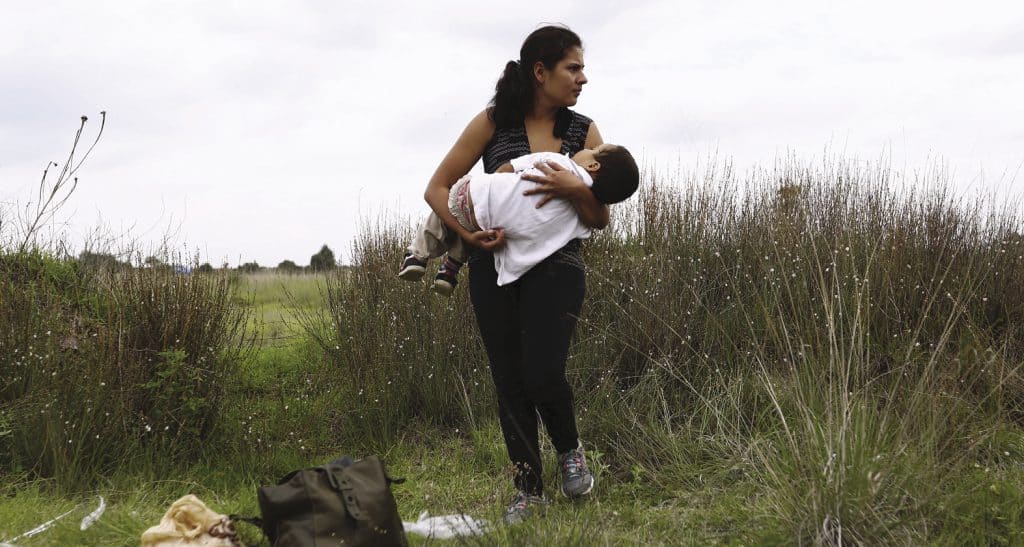
Looking to join her husband, Elmer, in North Carolina, a desperate Idalia could no longer wait. She and Iker crossed the Rio Grande into Texas and drowned in their attempt. According to Homeland Security, 750 migrants died in the fiscal year 2022 from heat stroke, dehydration, hypothermia, or drowning.
That story has stayed with me since I learned of it, and I keep thinking about Idalia and her son on this walk. Every step I take is within eyeshot of that border fence. Wherever you go, there it is. It stretches, in fact, into the Pacific Ocean. How many people have drowned while attempting to swim around it? If I were desperate for a life better than what I’ve known, could I do the same?
I cannot shake the image of search and rescue pulling Idalia’s and Iker’s bodies from the water. After their deaths, Elmer reported to Univision 34 his wife’s final text message, which is as prescient as it is heartbreaking: “Imagine,” she wrote, “I’m going to cross the river and I don’t know how [it is] going to be. What if I drown?”
One Nation
As our group boards the bus for our drive back, my mind regains some focus. I strike up a conversation with Celia, a Peruvian-born American woman in her 80s sitting next to me. She’s curious and chatty. We discover we both like the work of C.S. Lewis. I mention a quote by Lewis in reference to our border experience but can’t remember it exactly. I look it up on my phone.
“The Church is not a human society of people united by their natural affinities, but the body of Christ, in which all members, however different, must share the common life, complementing and helping one another precisely by their differences,” Lewis wrote.
It’s interesting how the words of an Anglican who wrote about wardrobes and witches perfectly summarize this experience for us. Are we not one nation, really—citizens of one battered and beautiful world?
Celia and I join hands briefly, two people from wildly different backgrounds. Somehow it feels like progress—a hopeful moment between new friends.
Sidebar: ‘Let Us Build a Future’
Pope Francis has shown, throughout his papacy, to be a vocal advocate for asylum seekers. Born in Buenos Aires, Argentina, to parents of Italian descent, he has an unmistakable empathy for the most imperiled of the world’s citizens. In his message for the 108th World Day of Migrants and Refugees in September 2022, he was, as he’s always been, clear and to the point.
“No one must be excluded. God’s plan is essentially inclusive and gives priority to those living on the existential peripheries. Among them are many migrants and refugees, displaced persons, and victims of trafficking,” he wrote. “The kingdom of God is to be built with them, for without them it would not be the kingdom that God wants.”
This is not idle talk. In 2019, he welcomed 33 refugees from camps in Lesbos, Greece, to Vatican City. Today, those families have found safety and a new start. Following the example of Jesus, a refugee and itinerate preacher, Pope Francis has encouraged us all to embrace those along the periphery.
“If we want to cooperate with our heavenly Father in building the future, let us do so together with our brothers and sisters who are migrants and refugees,” the pope said. “Let us build the future today! For the future begins today, and it begins with each of us.”
Resources
- Catholic Social Teaching on Immigration, USCCB: usccb.org/committees/migration/immigration
- Amnesty and Human Rights, Amnesty International: AmnestyUSA.org/campaigns/refugee-and-migrant-rights
- Immigration and Migration, Pew Research Center: PewResearch.org/topic/immigration-migration
- The UN Refugee Agency: unhcr.org/en-us
- The US Agency for International Development: USAid.gov


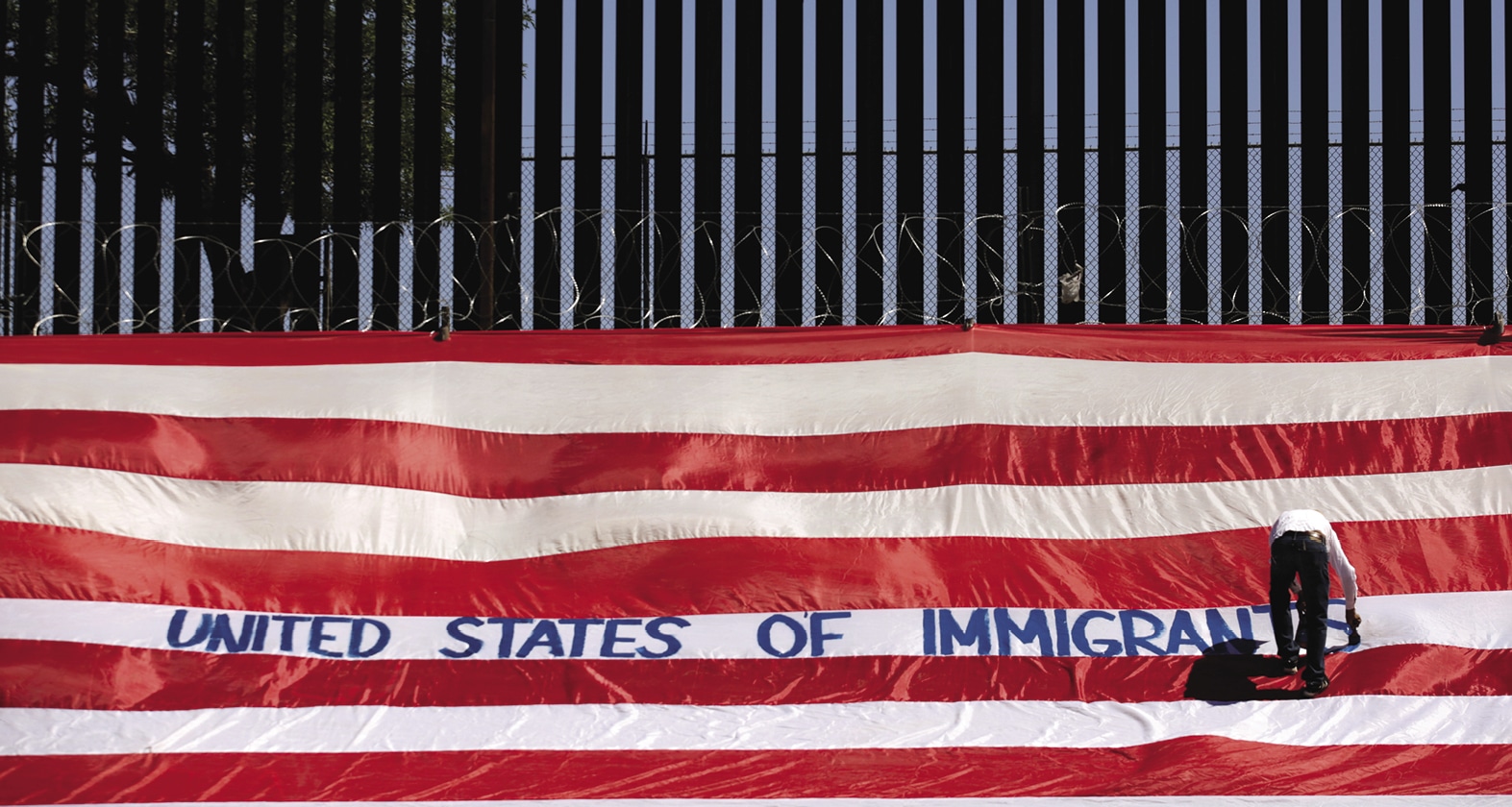

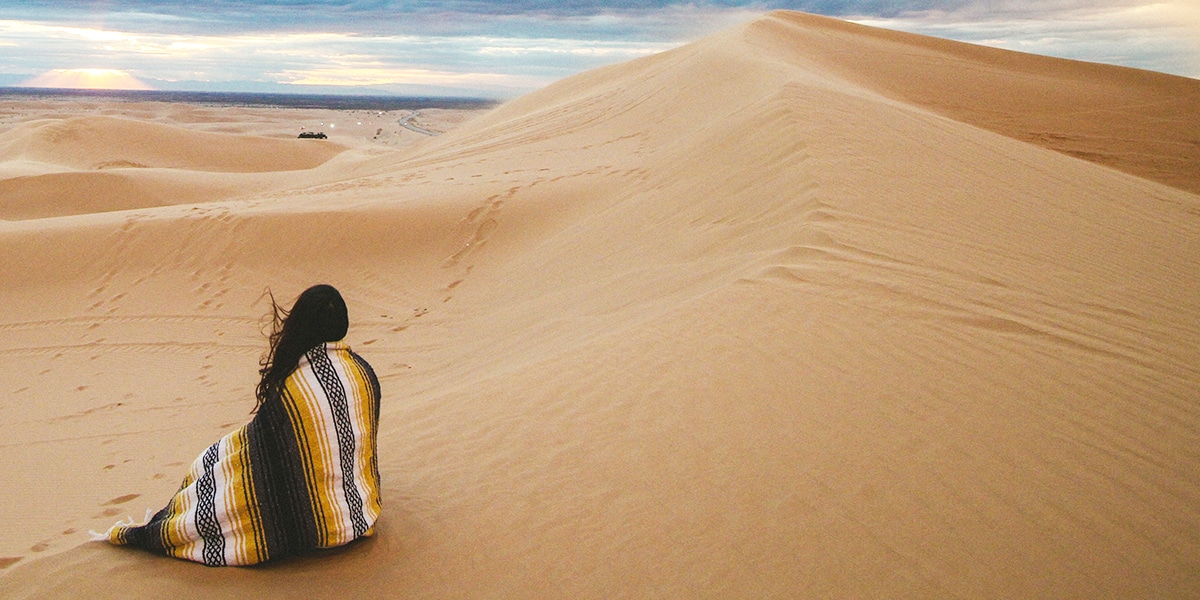
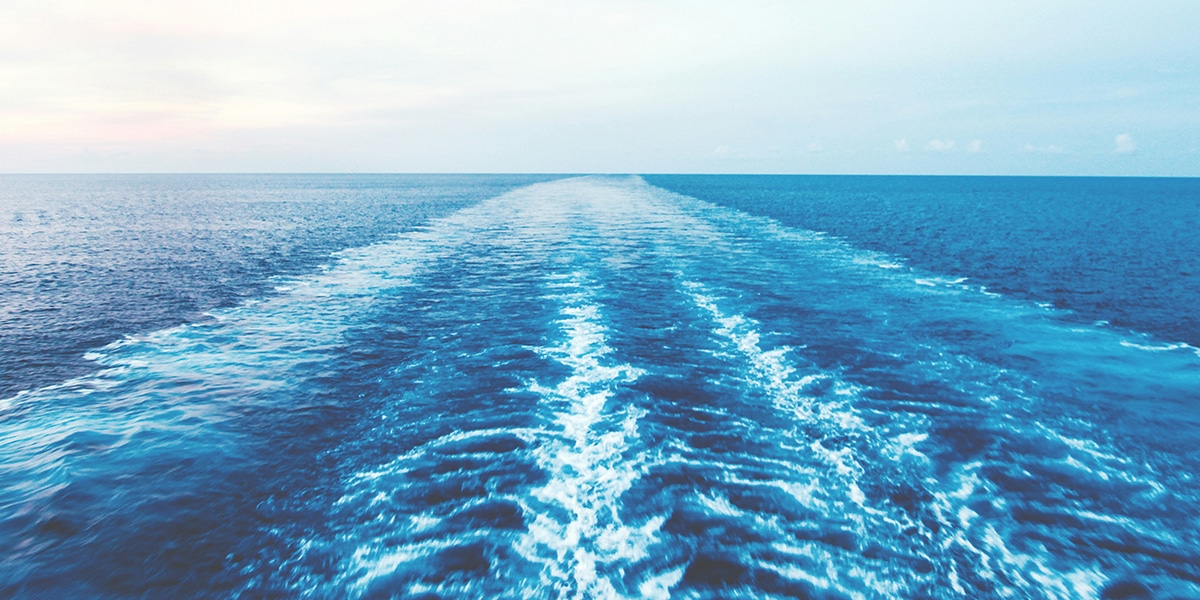
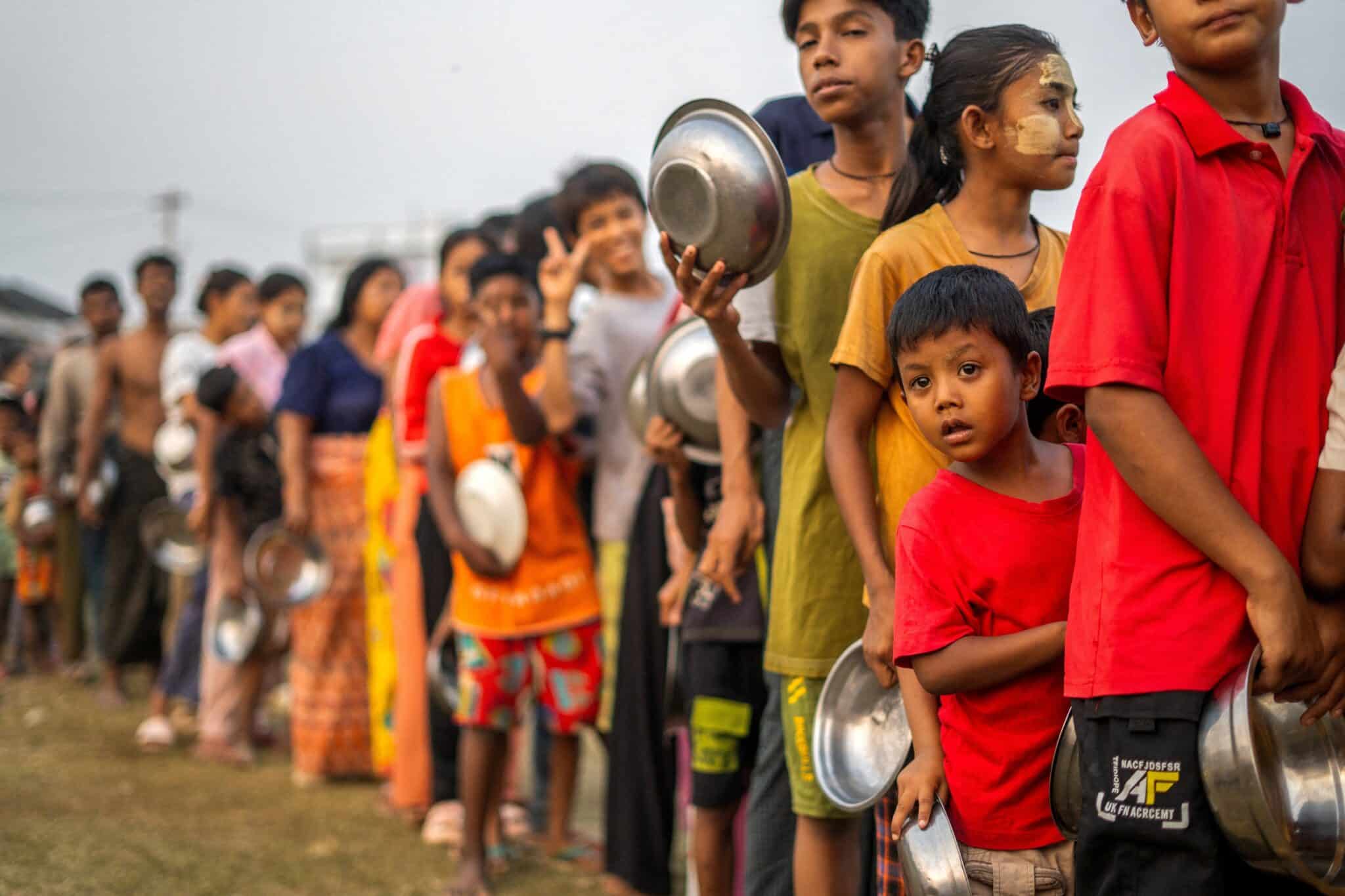
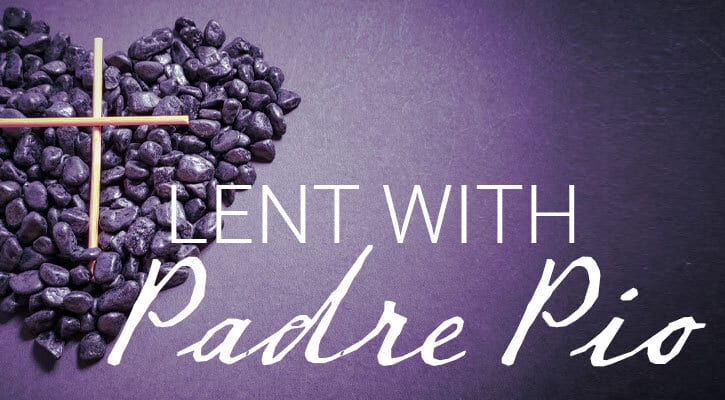

1 thought on “One Nation Under God”
The drowning story here is of course heartbreaking, as is mentioning those who are forced to leave their homes such as Ukranians. However it’s only a tiny part of the illegal immigration story! There are an overwhelming number who hear they can get free health care, free housing, free education…it’s free for them, but not for the American taxpayer. There is a legal process through which many thousands of immigrants arrive in the U.S. each year legally. Several people I work with came to this country legally over the past 15 years…it’s painful for them to see so many cut in line and be rewarded for it. To say that we should welcome everyone – do we all leave our doors open at night so anyone who feels like it can come on in and stay as long as they want without us knowing a thing about them? Of course not.